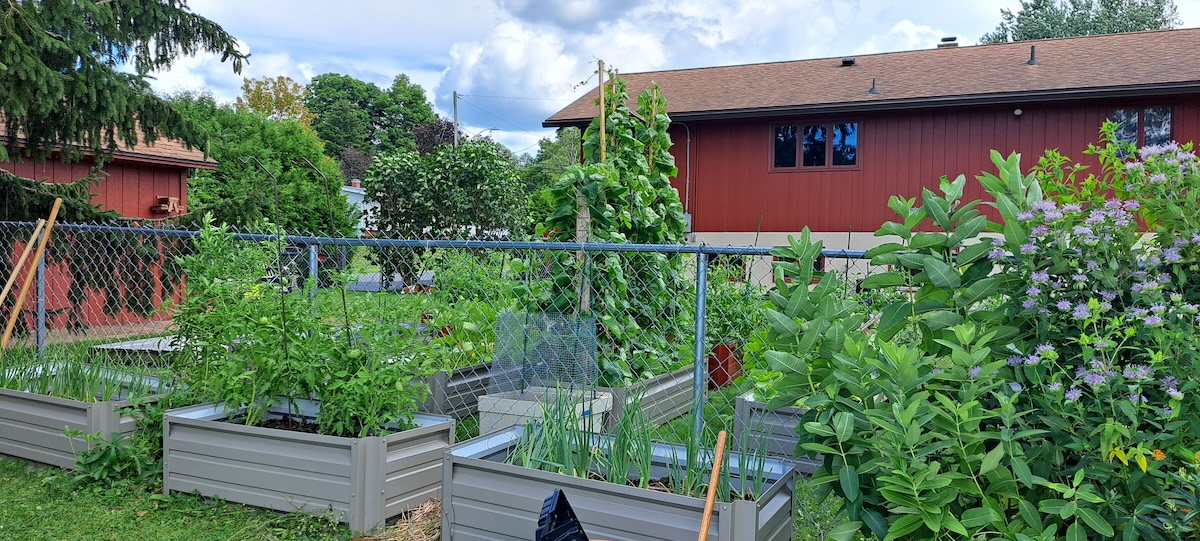Donna Shelton started teaching Spanish in 1978 as a graduate assistant at the University of Oklahoma, where she specialized in 20th Century Latin American Literature and completed her doctorate in Spanish in 1986. She went on to become program chair for the Spanish Bachelor of Arts and the Spanish Bachelor of Arts in Education degree programs at Northeastern State University in Tahlequah, Oklahoma. She retired from full-time teaching to move to New York State in 2017, having taught at seven different institutions in three states. She’s the co-author of the first-year college Spanish language textbook “Con brío,” and continues to teach hybrid and online courses part-time at SUNY Polytechnic Institute in Marcy near her home in Oriskany.

“I have no history of being an activist at all,” Donna told us. “My teaching was all consuming.” It was only after her retirement and her work as a volunteer at two non-profit associations in Utica that Donna found Third Act. She quickly claimed her space by becoming TAUNY’s social media expert, something that isn’t a common skill among elders, and a skill we sorely need. “Third Act gives me a chance to do what I can to get the message out: Life on earth is important.”
Donna also brings her commitment to fighting the climate crisis to her students at SUNY Polytechnic. “I write my own curriculum, so I insert the struggle to protect the planet into my Spanish language classes.” Donna teaches her students about the efforts of the indigenous peoples in Ecuador and Peru fighting to keep the international oil companies from extracting fossil fuels from the Amazon basin. “It’s hard to tell if it’s sticking, but I do what I can.”
“What drew you to teaching Spanish?” we asked. Donna told us that immersing herself in a foreign language offered a window into other cultures, ethnicities, and countries, while teaching gave her a chance to develop her ability to communicate and work with others. She grew up in a suburb of Kansas City, where her parents were conservative Republicans. Her mother passed away in 2007. During the last decade, her father and stepmother, along with her siblings— the entire family except for Donna—became strong Trump supporters.
“How do you stay connected to your family when you’re at odds with their politics, particularly the politics of climate?” we asked. In a polarized country, Donna confronts a sensitive issue that many of us can identify with. Donna says she sees no upside in arguing. “No one in my family knows that I’ve become involved with Third Act. They know I recognize that climate change is real, but that’s it. My father passed away recently, but he and my stepmother believed that any climate change we observe is the result of natural processes, the “climate has always changed” explanation of a lot of climate change deniers. It’s sad to be a ‘disappointment’ to the family, but I try to keep the connection.”
Despite being at odds with her family’s politics, Donna knows that she absorbed certain sensibilities from them which played a role in bringing her to Third Act. Her profound love of the natural world stems from her father and brothers’ love of hunting and fishing, which she always considered more an excuse for being out in nature than coming home with game and fish. Donna’s own experiences being out in nature include waiting on a Costa Rican beach for sea turtles during a lightning storm, hiking the Salkantay Trail to Machu Picchu in Peru, and walking the Camino de Santiago in northern Spain, at least until a broken ankle forced her to stop!
These days, being in contact with the outdoors, with the plants and creatures of her own yard, is Donna’s passion. She is currently training to become a Master Gardener Volunteer in a program offered by the Cornell Cooperative Extension in Oneida County. And as you can imagine, Donna tends her own extensive raised-bed garden, growing heirloom tomatoes from seed, pole beans, sugar snap peas, peppers, potatoes, garlic, summer and winter squash. Beets and carrots, however, have eluded her expertise. Donna loves it all, even the failures. That’s what gardening is all about. A sense of being part of the natural order is a calming project. As Voltaire’s Candide advises: “We must take care of our garden.” No better time than now.
We hope Donna doesn’t mind if we call on her for helpful tips with our own gardens, and much-needed assistance with social media.